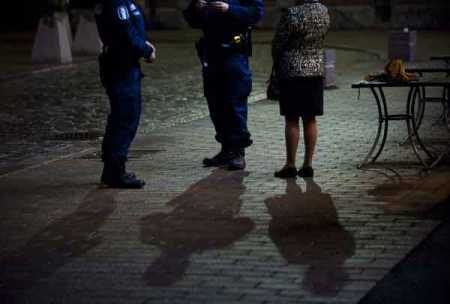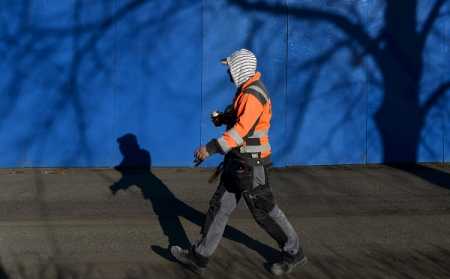Sun, 22 Jun, 2014 03:06:52 AM 56 victims indentified in 2013 Construction, restaurant, agriculture, transport marked as forced labour sectors FTimes Report, June 22  File picture of sex workers in Helsinki street. Photo Lehtikuva. Finland is still considered as a transit, destination, and limited source country for women and girls subjected to sex trafficking, and for men and women subjected to conditions of forced labour, according to a report of the US state department.
The report, however, said that a limited number of people are being victims of human trafficking in the country.
The US authority published the report ‘The Trafficking in Persons Report 2014’ on the countries across the world.
The report said that forced labour victims come to Finland from different countries including Belarus, China, Estonia, India, Kyrgyzstan, Latvia, Lithuania, Sri Lanka, Thailand, Turkey, Ukraine, and Vietnam.
The victims are exploited in the construction, restaurant, agriculture, metal, and transport industries, and as cleaners, gardeners, and domestic servants, said the report.
Female sex trafficking victims originate in the Czech Republic, Estonia, Latvia, Lithuania, Nigeria, Poland, Romania, Russia, Southeast Asia, and other parts of West Africa, said the report, adding that the Finnish teenagers are reportedly vulnerable to sex trafficking.
The report also pointed out that the Finnish government fully complies with the minimum standards for the elimination of trafficking.
It said that the law enforcement officials investigated more cases of trafficking and referred more victims to care in 2013, but the government prosecuted and convicted a very low number of suspected trafficking offenders relative to the substantial number of potential victims.
“The designated officers served as local resources and trainers for the other police officers and planned to meet twice annually to share best practices among the network of experts,” said the report, adding that the government also designated five prosecutors from different regions in the country to handle trafficking cases.

File picture of construction worker in Helsinki. Photo Lehtikuva. The report said that the government sustained its protection efforts during the reporting period, showing improvement in the number of victims identified by authorities who, however, struggled to identify sex trafficking victims.
The government provided both direct care and funding for third-party care through an asylum reception centre that offered shelter, psychological assistance, medical care, legal consultation, and other services to identified victims of trafficking.
The staff of the reception centre was also empowered to identify and authorize care for trafficking victims, even when law enforcement authorities did not identify a person as a trafficking victim. However, the available shelter housed a mixed population, which posed risks for the re-victimization of some trafficking victims, particularly victims of sex trafficking.
The government fully funded victim protection efforts for trafficking victims. Officials identified 56 victims in 2013, an increase from 46 victims identified in 2012.
In total, 128 potential trafficking victims asked for assistance in 2013, an increase from 60 in 2012, which was largely due to one group referral of 50 persons.
Victims of labour trafficking continued to constitute the bulk of the referrals to Finland’s victim assistance program, and experts reported that Finnish authorities’ efforts to identify sex trafficking victims were insufficient.
The government encouraged victims to assist in the investigation and prosecution of trafficking offenders. In 2013, 12 victims assisted law enforcement in pre-trial investigations, 10 of whom participated in the prosecutions of alleged traffickers.
Finnish law allowed identified trafficking victims a six-month reflection period, during which they could receive immediate care and assistance while considering whether to assist law enforcement.
Authorities provided 12 victims with a reflection period in 2013 compared to none in 2012. The government offered an extended residence permit to 12 victims wishing to stay longer than six months, compared to 32 permits issued in 2012.
More News
|
|
Finland Times
| Friday, 04 July, 2025 |

